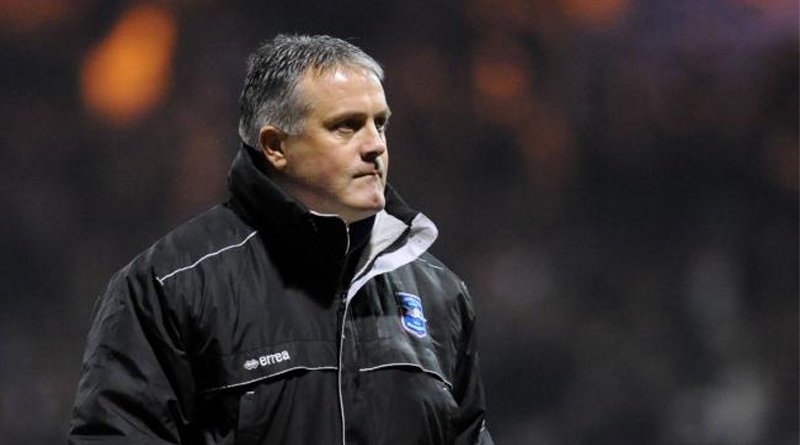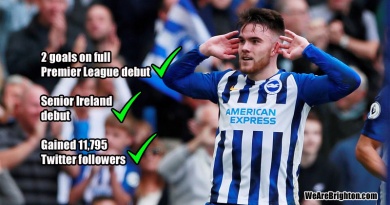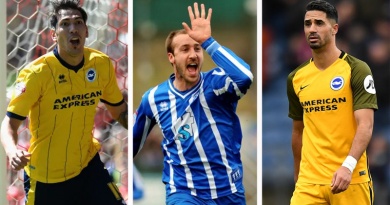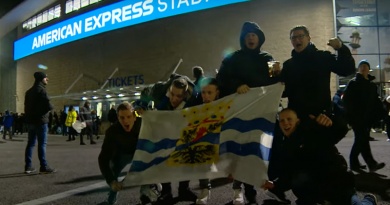Brighton managers who went back to the Albion for a second spell
Never go back is an oft-cited, unwritten rule of football. Especially when it comes to managers. In the 123-year history of Brighton & Hove Albion, only two managers have ever returned to the club for a second crack at the top job.
If the betting markets are to be believed, Graham Potter could become the third. Glow Up Graham remains the favourite to succeed Roberto De Zerbi as Brighton head coach after the fiery Italian and chairman Tony Bloom were unable to agree a common way forward.
We know from his first spell in charge of Brighton that Potter loves a history lesson. So, what lessons can he take from two of his predecessors who were brave enough to return to the club?
Alan Mullery
Alan Mullery became the first manager to have two spells in charge of Brighton. Between 1976 and 1981, he led the Seagulls from the third tier of English football to the top flight via two promotions in the space of three seasons.
It was a glorious time to follow Brighton. The goals of Peter Ward. Brian Horton patrolling midfield. Peter O’Sullivan on the wing and the silky skills of Mark Lawrenson. Division One football came to the Sussex for the first time ever.
In the final throes of Mullery’s first reign, the Albion pulled off one of their greatest ever escapes from certain doom.
Brighton had to win their final four games of the 1980-81 campaign and hope other results went their way to stand any chance of avoiding relegation out of the old Division One.
Victories over Crystal Palace, Leicester City, Sunderland and The Leeds United combined with Norwich City falling apart saw the Albion to safety against all the odds.
Mullery was subsequently offered and accepted a new three-year contract. The paperwork for the deal though never materialised.
The relationship between Mullery and chairman Mike Bamber became further strained when Mullery discovered the club were planning to sell Lawrenson to Liverpool.
Mulley meanwhile had lined up a deal with Manchester United boss Ron Atkinson for Lawrenson to move to Old Trafford.
Things came to a head in a meeting between Mullery and Bamber. The manger claimed he had been told to make changes to his coaching team. Bamber denied making such demands.
Whatever happened, Mulley subsequently resigned. Bamber was surprised, saying: “I am shocked but I will not stand in his way.”
And that was that. The most successful manager in Brighton history up to that point in time gone with little fight to try and retain him.
Mullery comes back to a very different club
Five years later and Mullery returned to a very different Brighton. The club were well into the financial downward spiral which would eventually lead a businessman from Lancashire to buy it for a little under £60.
Chris Cattlin was controversially sacked as manager before the final game of the 1985-86 season with the Albion mid table in the second tier.
Whilst Cattlin kept his silence having been accused of gross misconduct by the club, those Brighton supporters who backed the manager were not so quiet over hid departure.
A protest was held in Hove Park. 500 fans marched through Hove and 2,000 signed a petition calling for Cattlin to be reinstated.
It was all in vein though as the day after the campaign ended in a 2-0 defeat at Hull City, Mullery was announced as new Brighton manager.
With his hands tied somewhat financially and average crowds at the Goldstone Ground regularly dipping below 10,000, Mullery had a difficult job on his hands going into the 1986-87 campaign.
Goals were hard to come by with the previous season’s top scorer Dean Saunders a marked man. At the other end, John Keeley did at least prove a revelation between the sticks following his £1,500 signing from Chelmsford City.
Brighton struggled to score but were at least half-decent at keeping them out the other end. At the halfway point, a lower mid table finish seemed on the cards.
The Albion sat 15th on January 3rd 1986 after winning 2-1 at Grimsby Town. The relegation zone was eight points away at the time.
Two days later and Mullery was sacked for an alleged lack of commitment. Mulley had not signed a contract for his second spell in charge.
He claimed he had been stabbed in the back after being promised five years to rebuild the club when agreeing to return.
Youth team coach Barry Lloyd was swiftly placed in charge. Chairman Bryan Bedson responded to extreme criticism of his managerial decision making by giving Lloyd a three-year contract, showing fans who was running the show.
Lloyd failed to win any of his 15 games in charge. Brighton rapidly sank to the bottom of the table, running out victors in just two of the final 18 league fixtures of the season to be relegated some 11 points adrift of safety.
Micky Adams
Micky Adams first breezed into Brighton in April 1999. The Albion were homeless and floundering around the bottom eight of the bottom division.
Over the next two-and-a-half seasons, he transformed the club. A total rebuild of the squad in the summer of 1999 paved the way for Brighton to win the Division Three title in 2000-01.
The Seagulls were then well on course for back-to-back promotions when Adams left to become assistant manager of Leicester City in October 2001.
Peter Taylor took over and with a few shrewd acquisitions, led Brighton to the crown of Division Two champions. But it was very much Adams’ team.
Bobby Zamora. Michel Kuipers. Danny Cullip. Paul Watson. Richard Carpenter. Charlie Oatway. Nathan Jones. Paul Brooker. All signed by Adams.
Without Adams, the Albion’s rise on the pitch after years in the doldrums would not have happened.
The controversial return of King Micky
Nobody foresaw Adams returning to Withdean Stadium seven years after his departure – even though Dean Wilkins was not exactly a hugely popular Brighton manager.
One comment on North Stand Chat of Wilkins “looking like one of those gnomes in a garden centre you just want to kick” still lives in my mind almost 20 years later.
But Wilkins had done an undeniably good job in the 2007-08 season. His Albion team was a mix of promising young players – Jake Robinson, Dean Cox, Tommy Elphick, Joel Lynch – and experienced pros like Kuipers and Nicky Forster.
A seventh placed finish in League One gave cause for optimism over the future. With another year under the belt of the youngsters and the £300,000 January signing of Glenn Murray, Brighton looked capable of a promotion push in 2008-09.
And then Dick Knight brought back Adams. To rub salt into the wounds of Wilkins, Knight offered him a job as a first team coach. No man (or gnome) was ever going to accept such a demotion.
Adams took most of the good Wilkins had done and ripped it up. Lynch being ousted by new signing Colin Hawkins represented a crime which should have been tried in the Hague.
Other Adams signings included Kevin McLeod and Dave Livermore. With Brighton deep in relegation trouble by January, he brought in Jason Jarrett and Chris Birchall.
Adams became so desperate to fit Adam Virgo into his XI that he actually played the burly defender/striker on the right wing at one point. Leading to genuine rumours that Virgo had it in his contract that he had to start every game.
There was a marked difference in tone too between Adams in his first reign and second. His players from 1999 to 2001 used to refer to him as Hitler for how hard he could be on them.
In contrast, Adams in spell two said in his post-match interview after home defeat to Huddersfield Town: “The players are giving their absolute maximum at the moment and some of them need a cuddle.”
Brighton tumbled from the edge of the playoffs under Wilkins to the League One relegation zone with Adams at the helm in the space of nine months.
Things came to a head when the Albion were eliminated from the Paint Pot by Luton Town, rock bottom of the Football League at the time.
With Brighton staring League Two in the face, Adams was sacked to bring to a close a shambolic second spell. It was only thanks to the miracle work of Russell Slade that Brighton avoided relegation back to the bottom tier.




